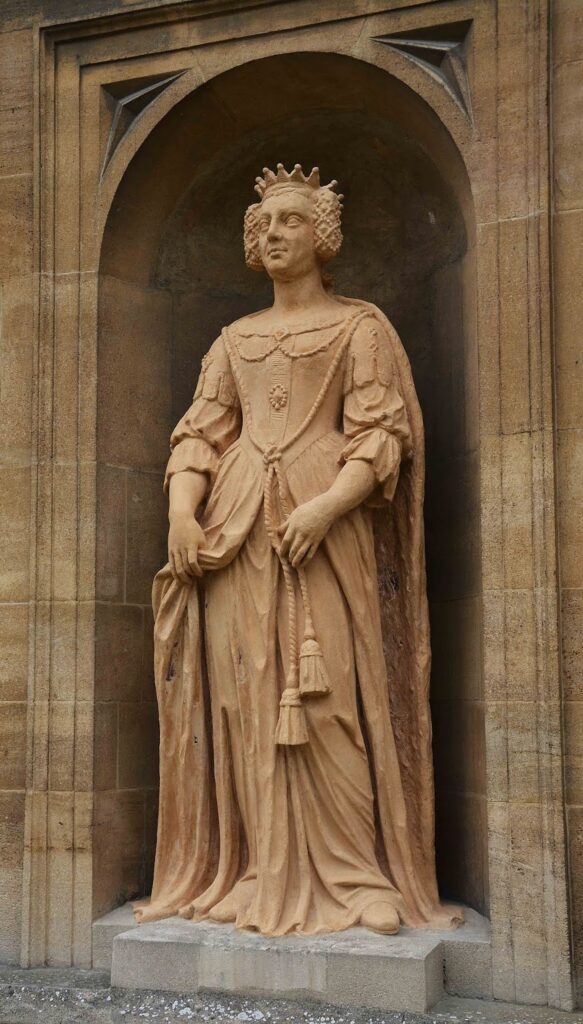18 December 1271 marks the largest corporate reorganisation in history. The great khan Kublai, chairman of the largest empire the world had seen, stepped back to a non-executive role. He did so to focus his efforts on the empire’s major subsidiary, the northern Chinese khanate.
Kublai achieved this by creating the Yuan Dynasty and by making himself its first emperor. Its first capital Shangdu was visited by Marco Polo four years later. We call it Xanadu.
Unhappily for the Mongols their dynasty lasted less than a century as they were unable to sustain hegemony over the Han.
Across the globe and two hundred years earlier the Normans began their hegemony over the Anglo-Saxons. The Normans were more successful that the Mongols. Eight centuries after the Battle of Hastings, William the Conqueror’s descendants still ruled over the only empire to exceed the Mongols’.
One difference was integration. Simply put and while prejudices on both sides continued for centuries, the Normans mixed with the Anglo-Saxons better than the Mongols mixed with the Han.
On 18 December 1075, the Conqueror permitted Queen Edith of Wessex to be buried with due pomp in Westminster Abbey. Understandable, as she had been the consort of Edward the Confessor, but remarkable, as she was aunt of William’s foe at Hastings, Harold Godwin.
Edith had no issue and most of Harold’s immediate family were slain by or faded after 1066. There is however Harold’s sister and Edith’s niece Gytha.
Gytha married Vladimir II Monomakh to become a princess of Kievan Rus’ or in the modern Ukrainian Kyivan Rus’.
On 18 December 1833 the anthem of the Russian Empire – the third greatest empire the world has seen – was played for the first time. While the anglophone knows the rousing piece as “God the Omnipotent!” for the audience it was “God Save the Tsar!”
It remains of no small significance that Russia has been for much of its history “Russias”. The Tsar’s formal title was:
By the Grace of God, We, NN, Emperor and Autocrat of All the Russias, Moscow, Kiev, Vladimir, Novgorod…
Back when Gytha married, the predominant Russia was Kyiv. Over the centuries Moscow achieved supremacy, and the invasion by the Golden Horde, another khanate of the Mongol Empire, was a catalyst in this process.
A key year was 1223, a half century before Kublai’s corporate reshuffle. At the Battle of the Kalka River, the Mongols under two of Genghis’s best generals annihilated a coalition comprising the Rus’ under Gytha’s descendants and the Cumans under Köten.
Another 150 years on Philippa of Hainault married the future English King Edward III. This extraordinary woman – the queen of The Queen’s College Oxford – was a direct descendant both of Gytha and of Köten.
The result of all this is that while the current English king Charles III is first cousin thrice removed of the last Tsar of all the Russias, that is merely the recent stuff. His Majesty is also able to celebrate the Battle of Hastings as the day when one of his ancestors defeated the other and to commiserate for the Battle of the Kalka River, the day two of his ancestors lost to Genghis.
There is a more poignant link. When Gytha died, Vladimir II Monomakh remarried and one of his descendants through this different line would be Ivan the Terrible of whom Joseph Stalin wrote:
Tsar Ivan was a great and wise ruler… His wisdom lay in the fact that he stood for national interests and did not let foreigners into the country… Ivan the Terrible was a very cruel person. You can depict him as a cruel man, but you have to show why he had to be cruel. One of the mistakes of Ivan concerned the fact that he did not entirely butcher the five major feudal families… Then, there would not be troubles later on… He should have been more resolute.
Ukraine is the breadbasket of Europe and Stalin’s role in the grain famine of the fourth decade informs our understanding of the relationship between Kyiv and Moscow.
On 18 December 1932 and increasingly dissatisfied with the grain situation, Stalin moved past local leaders and sent in his allies Lazar Kaganovich and Pavel Postyshev with special powers to use “all necessary measures of an organizational and administrative nature for fulfilling the grain requisition quota”.
As recently as 2010, the Kyiv Appellate Court found Kaganovich, Postyshev and other functionaries posthumously guilty for their role in the Holdomor, from moryty holodom, “to kill by starvation”.
Joseph Vissarionovich Stalin was born on 18 December 1878.
